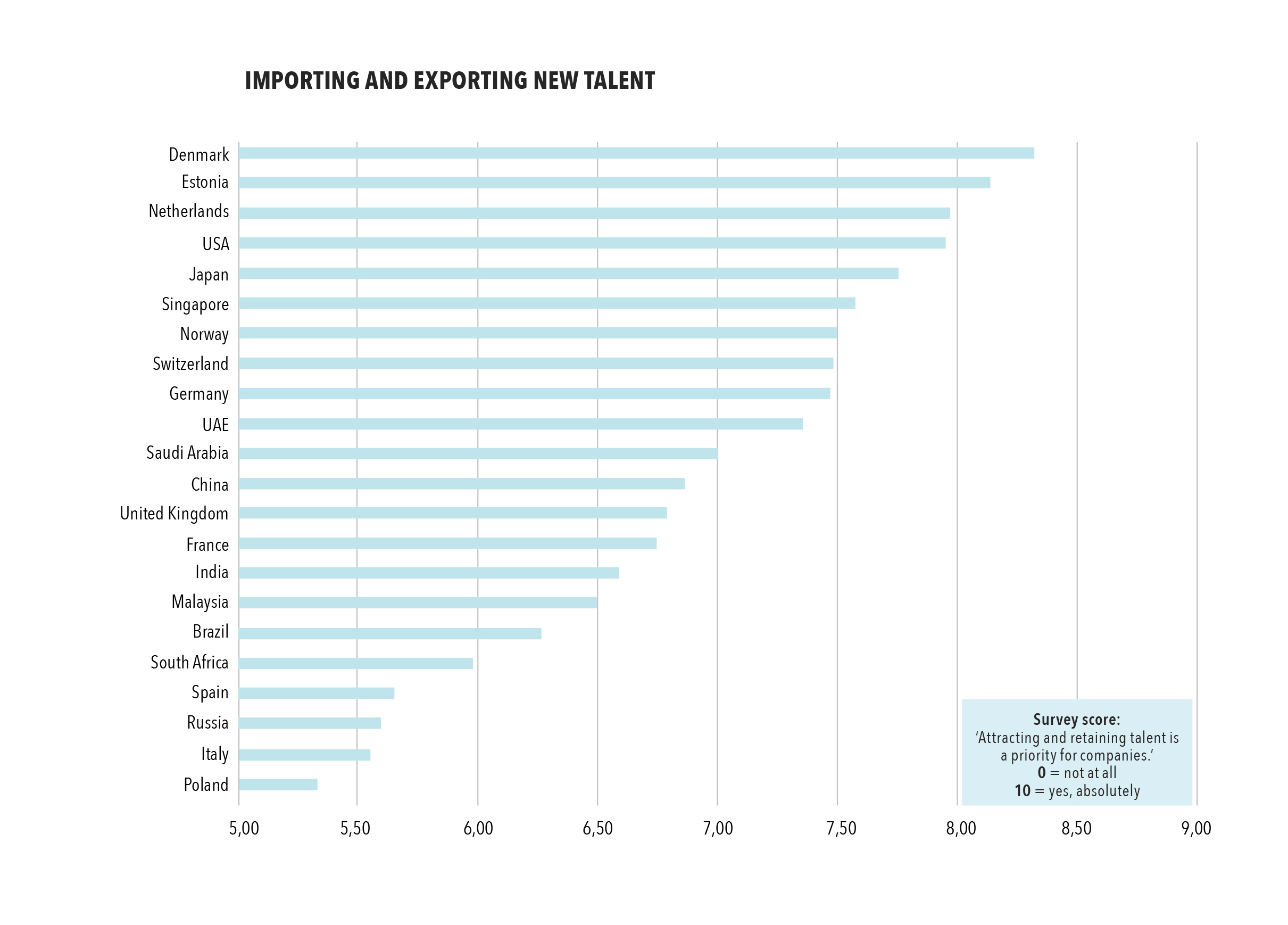
The AI productivity illusion
Confusing efficiency with productivity is to mistake speed for direction, and execution for value. Hamilton Mann explains how to avoid the pitfalls in your AI transformation...
Audio available

by Arturo Bris Published November 14, 2022 in Magazine • 5 min read •

Amanda gets up and goes to her “bullshit” job as a hotel receptionist. Why the derogatory tone? Because she says she finds no personal meaning in her role, and she’s not alone: when polled in a 2015 YouGov survey cited by the anthropologist David Graeber in his book Bullshit Jobs: A Theory, 30% of working Britons found none in theirs either.
Graeber defined this type of job as: “A form of paid employment that is so completely pointless, unnecessary, or pernicious that even the employee cannot justify its existence, even though, as part of the conditions of employment, [h/she] feels obliged to pretend that this is not the case.”
But Amanda is autonomous in the sense that she also pursues personal meaning – be it through playing, learning, moving, creating, caring or, indeed, “working” – by engaging in other activities at the same time. She earns $7,000 a month from her job, plus the income she receives from using three apps: Stepn, Lympo and StoreMe.
By virtue of going for a morning jog, Amanda collects non-fungible tokens (NFTs) via Stepn, the first move-to-earn blockchain running app. Move-to-earn is a fast-growing concept that rewards users with cryptocurrency for performing fitness activities, by using technology to track movement.
Next, Lympo. This is a multifunctional platform enabling her to benefit from her dedication alone. She uses it to log her daily water intake and her bedtime. She is rewarded with Lympo coins (LYM), a multi-purpose currency that uses the Ethereum blockchain, which she exchanges for discount coupons and offers from partners in the app.
The StoreMe app enables on-demand luggage storage for tourists, business travelers and locals. Amanda uses it to rent out her spare room to suitcases and earns a fee for her trouble.
Overall, Amanda’s $7,000 monthly salary is, according to a survey published in the journal Proceedings of the National Academy of Sciences, hitting the financial sweet spot for happiness in the US, where she lives. She is an example of what could well become much more widespread, especially since the pandemic.
Autonomy, which is what Amanda is experiencing, is one of a set of feelings, including mastery, purpose, and making a meaningful contribution, that drives tomorrow’s generation as much as, if not more than, having cash in their pocket.
The American author Daniel H Pink first grouped together these three elements of what he called true motivation in his 2009 book Drive: The Surprising Truth About What Motivates Us. He argued that a deeply human need to direct our own lives, to learn and create new things, and to do better by ourselves and our world were all more motivational than financial reward.
This has become more pronounced since the pandemic, driving the Great Resignation of 2021 when record numbers of workers quit their jobs. Autonomy and flexibility will likely characterize Generation Z (those currently aged 10-25) in the workplace, just as it currently does Millennials and Generation X.

As I anticipated in my 2019 book, The Future of Work and Pay: Flex or Fail, autonomy is today being achieved by the new generation via the pursual of several income streams. And technology is making it much easier. If this is not a widely known fact, it is in part because governments and industry are failing to disseminate knowledge, falling short in helping people’s understanding on the matter, and turning a blind eye to implementing the tech optimally.
From the point of view of financial inclusion, the potential that technology-related incomes via several streams offers to individuals is mind-blowing, going far beyond the current reality of fintech platforms opening access to employees who do not have traditional bank accounts. Indeed, we could well be on a path to witnessing a total redefinition of capitalism and an entire overhaul of business models.
What I describe above is not far-fetched. Europe is making strides moving in this direction. When, in July, the Dutch parliament drafted legislation to establish remote working as a legal right for employees, the Netherlands became a global pioneer for protecting remote work flexibility by law: the Dutch senate appears likely to approve the proposed amendments to the country’s Flexible Work Act.
From the point of view of financial inclusion, the potential that technology-related incomes via several streams offers to individuals is mind-blowing
The Flexible Work Act (which became effective in 2016 and regulates the rights of employees regarding working hours and place of work) contains certain grounds for refusing an employee’s request to adjust working hours and/or work times, but not for a request to change the place of work, such as working from home. The new legislation will stipulate that employers must consider such requests and, in the case of a denial, must give reason for doing so.
The Dutch legislation could cause a ripple effect in other European Union countries. Germany is already working on policies that could legally increase flexibility for employees, and employment lawyers say France and Portugal are looking at laws on remote working. The trend is likely to catch on in the Middle East and Southeast Asia, too, where commuting times can be excessively long and working from home is becoming more popular.
Faced by the new generation’s demands, companies need to focus on attracting and retaining talent, because employees will have ever-more options in the future. As can be seen in the graph on the previous page, Denmark, Estonia, and the Netherlands currently do this far better than major economies such as China, the UK, and France.
For companies, re-imagining their future in light of the demands for flexibility and autonomy – not only as employees but also as customers – requires taking key steps. As I have written with my co-authors, Dr Tony Felton and Robby Mol, in The Future of Work and Pay, a good starting point would be seven key considerations:
Ultimately, the nine-to-five job is bound to disappear, and companies and governments need to provide individuals with different forms of compensation. Being flexible also requires companies to provide employees with opportunities for redeployment through learning and paid leave. A job, which used to be a productive activity that allowed individuals to pay their bills, is now transforming into a self-fulfilling activity for which the individual gets paid, whether or not it is deemed “productive”. And all-round flexibility to facilitate this new state of affairs is key.

Professor of Finance at IMD
Arturo Bris is Douglas Geertz IMEDE 1988 Professor in Geopolitics and Business and Professor of Finance at IMD. Since January 2014, he has led the world-renowned IMD World Competitiveness Center. At IMD, Bris directs the Boards and Risks program and Blockchain and the Future of Finance program. He also previously directed the flagship Advanced Strategic Management program between 2009 and 2013.

January 26, 2026 • by Hamilton Mann in Audio articles
Confusing efficiency with productivity is to mistake speed for direction, and execution for value. Hamilton Mann explains how to avoid the pitfalls in your AI transformation...
 Audio available
Audio available
January 22, 2026 • by Shelley Zalis in Audio articles
Multigenerational teams bring competitive advantages. It’s vital to tap into the wisdom and experience of older workers, urges Shelley Zalis....
 Audio available
Audio available
January 21, 2026 • by Rupa Dash in Audio articles
As women live longer, society must rethink careers and leadership to unlock a longevity-equality dividend that enables women to contribute and lead at every life stage....
 Audio available
Audio available
January 16, 2026 • by Jørgen Vig Knudstorp in Audio articles
Real influence in the boardroom comes not from power or persuasion, but from humility, clarity, and the courage to disagree, says Jørgen Vig Knudstorp...
 Audio available
Audio availableExplore first person business intelligence from top minds curated for a global executive audience